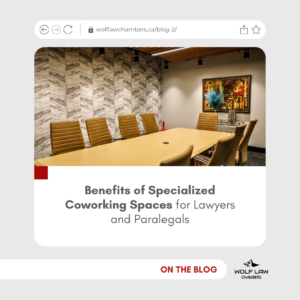BENEFITS
The Best Legal Tech Apps for Solo Practitioners and Small Firms
Navigating the legal world as a solo practitioner or a member of a small firm requires efficiency, organization, and tools that can keep up with your fast-paced workload. Thankfully, the rise of legal technology has leveled the playing field, offering affordable and accessible solutions for every aspect of legal practice. Here are some of the best legal tech apps to consider:
1. Clio Manage – Practice Management Simplified
Clio is a cloud-based practice management tool that streamlines case management, time tracking, billing, and client communication. Its intuitive interface and integration with tools like Google Workspace make it perfect for solo practitioners seeking an all-in-one solution.
2. Casetext – Legal Research, Redefined
Casetext uses AI to revolutionize legal research. With features like “Parallel Search,” it makes finding precedents and case law faster and more accurate than ever. For small firms with limited resources, it’s a cost-effective alternative to traditional research platforms.
3. MyCase – Effortless Client Collaboration
For solo lawyers and small teams, MyCase combines case management, billing, and client portals into a single app. It enhances collaboration by giving clients access to updates, documents, and communication in one secure space.
4. DocuSign – E-Signatures Made Easy
Time is money, and DocuSign ensures you don’t waste either. It allows lawyers to send, sign, and manage legal documents electronically, reducing turnaround times and keeping everything compliant.
5. LawPay – Seamless Payment Processing
Billing can be a hassle, but LawPay simplifies it by offering secure payment processing tailored for lawyers. It integrates with most practice management tools and makes it easy to accept payments online or in person.
Why Legal Tech Matters
For solo practitioners and small firms, efficiency is everything. Legal tech apps not only save time and reduce costs but also enhance the quality of service you can provide to clients. Adopting the right tools allows you to focus on what you do best—delivering exceptional legal counsel.
How to Choose the Right Coworking Space for Your Legal Practice.
As a legal professional, your choice of workspace plays a crucial role in building trust, maintaining confidentiality, and growing your practice. Here’s how to choose the perfect coworking space for your needs:
1. Evaluate Location
Choose a space in a professional neighborhood that’s easily accessible for your clients and provides proximity to courthouses or other legal hubs.
2. Consider Professional Amenities
A good coworking space for legal professionals should offer essential amenities like:
- On-demand meeting rooms for client consultations.
- Printing, scanning, and storage options for legal documents.
- Reception services to create a polished first impression.
3. Network Opportunities
Some coworking spaces host networking events or house professionals from complementary fields, such as finance or real estate, which could generate referrals for your practice.
4. Test the Culture
Ensure the environment aligns with your professionalism. Visit the space, observe its vibe, and assess whether it supports focused, high-quality work.
Choosing the right coworking space isn’t just about functionality; it’s about finding a place that supports the credibility and efficiency of your practice. Take your time, weigh your options, and invest in a space that sets you up for success.
Benefits of Specialized Coworking Spaces for Lawyers and Paralegals
As the legal profession evolves, specialized coworking spaces are gaining traction as a valuable resource for lawyers and paralegals. Unlike traditional offices or generic coworking hubs, these tailored environments offer unique benefits that address the specific needs of legal professionals.
1. Professional Atmosphere
Specialized coworking spaces cater to the professional standards of the legal industry. They provide private offices, meeting rooms, and settings that exude credibility—ideal for client consultations and sensitive discussions.
2. Cost-Effective Solutions
For solo practitioners and small law firms, renting a full-fledged office can be costly. Coworking spaces offer flexible memberships, enabling legal professionals to access high-end facilities without the financial burden of long-term leases.
3. Access to Legal Resources
Many specialized spaces provide access to tools like legal research databases, court filing assistance, and even notary services. These resources streamline day-to-day tasks, allowing teams to focus on casework.
4. Networking Opportunities
Sharing a workspace with other legal professionals fosters collaboration and networking. Whether it’s exchanging insights or referring clients, the connections formed in these environments can lead to valuable partnerships.
5. Enhanced Productivity
Designed with the legal workflow in mind, these spaces minimize distractions and support focused work. Amenities such as ergonomic furniture, high-speed internet, and secure file storage further enhance efficiency.
Specialized coworking spaces are more than just a trend—they’re a smart solution for modern legal professionals seeking flexibility, professionalism, and community. If you’re a lawyer or paralegal looking to elevate your practice, consider exploring these tailored spaces to meet your needs.
How Coworking Spaces Foster Collaboration Across Legal Areas of Practice
Coworking spaces are transforming the way professionals across various industries collaborate, and the legal field is no exception. Traditionally, law firms have been separate, hierarchical entities, often operating in silos. However, coworking spaces are encouraging lawyers from different practice areas to connect, share knowledge, and collaborate on projects.
One of the primary advantages of coworking spaces is the diverse community they bring together. Legal professionals from corporate law, intellectual property, criminal defense, and other specialties work side by side, creating opportunities for cross-disciplinary collaboration. By networking in a casual, open environment, lawyers can exchange ideas, seek advice, and even partner on cases that require expertise from multiple legal fields.
These shared spaces also help break down traditional barriers that can limit collaboration. Many smaller law firms or solo practitioners don’t have the resources to establish large office networks, but coworking spaces provide affordable, flexible environments where legal professionals can interact with colleagues they might not have met otherwise. Whether through informal conversations in the kitchen or during organized networking events, the physical proximity sparks connections that benefit the legal community.
Moreover, coworking spaces often host workshops, seminars, and panel discussions on various legal topics, providing an additional avenue for collaboration. These events allow legal professionals to stay updated on trends, enhance their skill sets, and collaborate on shared interests.
In conclusion, coworking spaces are more than just shared offices. They are vibrant hubs that encourage collaboration across different legal areas, leading to innovative solutions and more effective legal practices. By fostering a sense of community and shared knowledge, these spaces are helping reshape the future of legal work.
Networking Strategies for Legal Teams in Coworking Spaces
In today’s dynamic work environment, coworking spaces have become a hub for collaboration, innovation, and opportunity. For legal professionals, networking within these spaces offers unique benefits. Here are some effective strategies to make meaningful connections:
Leverage Shared Events Participate in workshops, seminars, or community events hosted by your coworking space. These gatherings are perfect for meeting diverse professionals, exchanging ideas, and staying updated on industry trends. Make it a goal to introduce yourself to at least three new people at each event.
Build Reciprocal Relationships Networking isn’t just about gaining referrals; it’s about creating mutually beneficial connections. Offer your expertise to other members. For instance, if someone mentions a contract challenge, share general advice or suggest useful resources. This positions you as approachable and knowledgeable.
Utilize Common Areas The lounge or coffee station isn’t just for breaks; it’s a networking goldmine. Casual conversations can lead to surprising opportunities. Keep your introductions brief and engaging to foster genuine interest.
Collaborate on Cross-Disciplinary Projects Many coworking members are entrepreneurs or startups who may need legal guidance. Offer to host a brief “Ask a Lawyer” session to build credibility and trust.
Stay Visible and Accessible Consistency matters. Regularly engage with the coworking community both online (via shared platforms) and offline. A friendly demeanor and openness to chat can make a lasting impression.
For legal teams, coworking spaces are not just workstations but vibrant ecosystems of potential clients and collaborators. By taking a proactive and relationship-focused approach to networking, you can strengthen your professional presence while adding value to your community.
Confidentiality and Privacy Tips for Legal Professionals in Shared Workspaces
In today’s collaborative work environments, shared workspaces dedicated to legal professionals such as paralegals and lawyers have become increasingly popular. While these spaces foster networking and collaboration, they also pose unique challenges to maintaining confidentiality and safeguarding client privacy. Here are key tips to navigate these challenges effectively:
1. Be Mindful of Conversations
Avoid discussing sensitive client information in common areas. If you need to have a confidential conversation, use private rooms or designated spaces designed for such discussions. Lower your voice and be cautious of your surroundings even in semi-private areas.
2. Secure Your Documents
Ensure that physical files and documents are always secured. Use lockable drawers and avoid leaving sensitive papers on your desk unattended. When disposing of confidential material, shred it instead of discarding it in regular trash bins.
3. Leverage Technology Wisely
Use password-protected devices and enable screen privacy filters on your computers and laptops to prevent unauthorized viewing. Be cautious when working on sensitive cases in public areas, including during virtual meetings.
4. Practice Email and Messaging Hygiene
Double-check email addresses and attachments before sending. When discussing sensitive matters, ensure encrypted communication channels are used. Avoid sharing confidential information over unsecured platforms.
5. Set Clear Boundaries
Establish a clear personal workspace within the shared office. Use visual cues such as a privacy screen or headphones to signal focus time, minimizing interruptions that could lead to inadvertent disclosures.
6. Educate Your Colleagues
Regularly train your colleagues on confidentiality protocols and the importance of privacy in shared workspaces. Ensure everyone understands their responsibility to protect client information.
Shared workspaces designed for legal professionals can enhance collaboration and efficiency, but they also demand heightened vigilance. By adopting these practices, paralegals and lawyers can confidently uphold their ethical obligations while thriving in modern work environments.
Building Client Trust in a Coworking Environment
In a coworking environment, trust is the foundation of successful client relationships. For legal professionals such as lawyers and paralegals operating in shared spaces, building trust is not just beneficial but essential to foster a sense of credibility and loyalty. Here’s how you can strengthen trust with your clients in a coworking setup:
1. Consistent Communication
Maintain open and transparent communication with your clients. Regular updates on case progress, prompt responses to inquiries, and clarity in legal advice create a strong impression of reliability. Whether through emails, scheduled consultations, or shared platforms, ensure your clients feel heard and informed.
2. Deliver on Promises
Reliability is key. If you commit to deadlines or specific case milestones, ensure you meet them. Under-promising and over-delivering can further enhance your credibility and establish a reputation for professionalism and excellence.
3. Leverage the Community
Coworking spaces offer a unique opportunity to connect clients with other professionals, including those in complementary fields such as finance or real estate. By introducing your clients to relevant resources or collaborators within the space, you demonstrate value beyond the immediate legal relationship, enhancing their trust in your network and capabilities.
4. Personalized Interactions
Take the time to understand your clients’ unique legal needs and preferences. Tailoring your approach to address their specific concerns shows dedication and builds stronger emotional connections.
5. Foster Transparency
Be honest about legal processes, potential outcomes, and any challenges you may face. Clients value authenticity, and addressing concerns proactively fosters a deeper sense of trust and confidence in your expertise.
In the dynamic world of coworking, trust is built over time through consistent actions and genuine connections. By prioritizing communication, reliability, and community, you not only enhance client relationships but also contribute to a thriving coworking ecosystem for legal professionals.
How Paralegals Can Maximize Efficiency in Shared Workspaces
The shift to shared workspaces has brought flexibility and collaboration opportunities to the legal profession, but it also presents unique challenges for paralegals. Staying efficient in this dynamic environment requires strategic planning and leveraging available tools.
- Organize Your Workflow: Start your day by prioritizing tasks. Use project management tools like Trello or Asana to track deadlines, case details, and assignments. This ensures you stay on top of your workload, even in a bustling shared office.
- Leverage Technology: Equip yourself with digital tools to streamline legal tasks. Cloud-based document management systems like Clio or MyCase enable you to access files securely from anywhere in the workspace. Pair this with noise-canceling headphones to maintain focus in open areas.
- Communicate Effectively: Shared workspaces thrive on collaboration, but interruptions can derail productivity. Establish clear communication protocols with your team. Utilize messaging apps like Slack for quick queries and schedule regular check-ins to discuss case progress.
- Create Boundaries: While flexibility is a perk, set boundaries to protect your time. Reserve quiet zones or book private meeting rooms for concentrated work, especially when handling sensitive documents or client calls.
- Network Strategically: Shared spaces often bring together professionals from diverse fields. Use this as an opportunity to expand your network, gain insights, and build relationships that could benefit your legal career.
Adapting to shared workspaces is a skill paralegals can master with the right approach. By staying organized, embracing technology, and fostering effective communication, you can maximize efficiency while thriving in a collaborative environment.
Time Management Tips for Lawyers in Coworking Spaces
For lawyers balancing casework, client meetings, and court schedules, effective time management is non-negotiable. Operating out of a coworking space adds another layer of complexity, with its unique distractions and opportunities. Here are some practical tips to help lawyers make the most of their time:
- Leverage Private Spaces Most coworking spaces offer private rooms or phone booths. Schedule these for client calls or focused work to minimize distractions and maintain confidentiality.
- Utilize Scheduling Tools Platforms like Calendly or Google Calendar are great for managing client appointments and syncing team schedules. Use time-blocking techniques to dedicate slots for research, writing, and client interactions.
- Set Boundaries Coworking spaces can be social hubs. Politely set boundaries with other members during your peak productivity hours to avoid unnecessary interruptions.
- Take Advantage of Amenities Many coworking spaces provide services like printing, scanning, and legal databases. Familiarize yourself with these amenities to streamline your workflow and save time.
- Network Strategically Networking can be a valuable use of time when done intentionally. Participate in events or connect with professionals whose expertise complements your legal practice.
- Embrace Technology Use cloud-based legal software for case management and document sharing. These tools allow you to work seamlessly between the coworking space, court, and home.
- Take Breaks Regular breaks are essential to stay sharp. Coworking spaces often have lounges or quiet zones—make use of them to recharge.
By implementing these strategies, lawyers can maximize their productivity and thrive in the dynamic environment of coworking spaces.
Embracing Flexibility: How Canadian Lawyers Can Use Coworking Spaces for Growth
In a rapidly evolving professional landscape, the legal profession in Canada is undergoing significant change. While the courtroom remains central to a lawyer’s work, the traditional office is becoming less essential. Enter coworking spaces: modern, flexible, and collaborative environments that offer more than just a desk. For Canadian lawyers, these spaces represent an opportunity to grow professionally while embracing flexibility.
Why Coworking?
Coworking spaces are designed to meet the diverse needs of today’s workforce. They offer:
- Flexible leases: Forget the long-term commitments of traditional office leases. Coworking spaces provide options to scale up or down as needed.
- Cost efficiency: Shared amenities like meeting rooms, reception areas, and high-speed internet reduce overhead costs.
- Networking opportunities: Sharing a space with professionals from various industries opens doors to potential collaborations and client leads.
For lawyers, these features can translate into tangible benefits, such as reaching new clients, improving work-life balance, and enhancing professional agility.
Key Benefits for Lawyers
- Improved Client Accessibility
Many coworking spaces are strategically located in city centers, making them convenient for client meetings. Access to professional conference rooms and private areas ensures client confidentiality and a polished impression. - Enhanced Focus and Productivity
Coworking spaces are designed for productivity, offering a mix of quiet areas for focused work and collaborative zones for brainstorming. Lawyers can concentrate on their caseloads without the distractions of a home office or the rigid structure of a traditional setup. - Professional Growth and Networking
The coworking community includes professionals across industries, from entrepreneurs to tech specialists. For lawyers, this presents opportunities to connect with potential clients or collaborators, expanding their professional reach. - Flexibility for Remote and Hybrid Work
As remote work becomes more common, coworking spaces serve as a middle ground. They offer the perks of an office environment—such as reliable infrastructure and a professional setting—without the full-time commitment.
Adapting to the Future
Law firms and solo practitioners alike can leverage coworking spaces to adapt to changing client expectations and workforce trends. By embracing these flexible spaces, Canadian lawyers can reduce operational costs, increase their visibility in the market, and create an environment that supports innovation and collaboration.
Final Thoughts
Coworking spaces are not just for startups—they’re a game-changer for industries, including law. By stepping into these flexible work environments, Canadian lawyers can redefine how and where they practice, ensuring their growth and success in an evolving world.
Let’s connect! If you’re a legal professional who has embraced coworking or is considering it, share your thoughts or experiences in the comments. Together, let’s explore how flexibility fuels growth in the legal industry.










